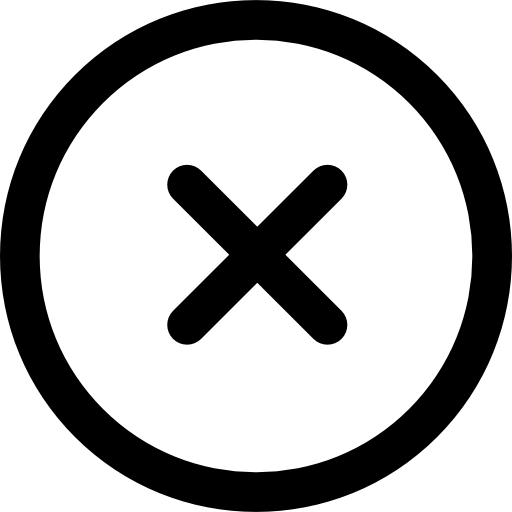Starting a gym equipment business can be a great way to capitalize on the ever-growing fitness industry and become an entrepreneur. Whether you want to set up a physical store or an online shop, it’s important to do your research and plan out your business venture carefully.
Start Your Own Gym Equipment Business: Step-by-Step Guide
Starting a gym equipment business can be a rewarding and lucrative venture, but it requires careful planning, execution, and ongoing effort. The fitness industry is growing rapidly, and there is a growing demand for high-quality gym equipment.
In this blog, we will provide a step-by-step guide for starting your own gym equipment business, covering everything from researching the market to launching your products and growing your business.
Whether you're a fitness enthusiast or just looking to enter a growing industry, this blog will provide you with the knowledge and resources you need to launch a successful gym equipment business and make your mark in the industry. From sourcing equipment to developing a marketing strategy, this guide will help you navigate the process and ensure your success.
Researching the Market
The first step in starting a gym equipment business is to research the fitness industry and understand who your target customers are. Get to know what type of fitness equipment they are interested in, the price points they’re willing to pay, and where they prefer to shop. Additionally, study the competition and look for any gaps in the market that you could potentially fill.
It is also important to research the legal requirements for starting a gym equipment business. Make sure you understand the regulations and licensing requirements in your area, as well as any other relevant laws that may apply. Additionally, research the tax implications of running a business and make sure you are compliant with all applicable laws.
Creating a Business Plan
After completing your market research, it’s time to create a business plan. This plan should include a detailed description of your business model, financial projections, long-term goals and strategies, and other important information. Make sure to include research from industry experts and use data from your market research to back up your assumptions.
Your business plan should also include a competitive analysis, which will help you identify your competitors and their strengths and weaknesses. Additionally, you should include a marketing plan that outlines how you plan to reach your target audience and promote your business. Finally, make sure to include a timeline for when you plan to achieve your goals.
Securing Funding
Once you’ve created your business plan, you’ll need to secure funding for your venture. Consider applying for bank loans or small business grants, or look into alternative financing options such as crowdfunding. Be sure to do your due diligence before committing to any funding options.
When applying for a loan or grant, make sure to have all the necessary documents ready. This includes your business plan, financial statements, and any other relevant information. Additionally, research the requirements for each loan or grant you are applying for, as they may vary. Finally, be sure to read the fine print of any loan or grant agreement before signing.
Obtaining Licenses and Permits
Before opening your gym equipment business, you’ll need to obtain the necessary licenses and permits from the local government. Depending on the type of equipment you’ll be selling and the location of your store, you may need special permits or certificates. Check with your local government or chamber of commerce for specific requirements.
It is important to research the local laws and regulations that may apply to your business. You may need to obtain a business license, a sales tax permit, or a zoning permit. Additionally, you may need to register with the state or federal government if you plan to hire employees. Make sure to research all of the necessary permits and licenses before opening your business.
Choosing a Location for Your Business
Finding the right location for your gym equipment business is essential for its success. Consider factors such as the local population density, foot traffic, access to public transportation, and parking availability. Additionally, think about the type of customers you want to target and make sure your location meets their needs.
It is also important to consider the competition in the area. Research the other businesses in the area and make sure your location stands out from the crowd. Additionally, consider the cost of renting or buying the space and make sure it fits within your budget. Finally, make sure the location is easily accessible and visible to potential customers.
Setting Up Your Gym Equipment Store
Once you’ve chosen a location for your business, it’s time to start setting up your store. Take into account factors such as the type of equipment you’ll be selling and how much space you need. Additionally, consider the type of layout you want for your store and be sure to invest in quality displays and furniture.
When setting up your store, it's important to think about the customer experience. Make sure your store is well-lit and inviting, and that your displays are organized and easy to navigate. Additionally, consider adding amenities such as a water fountain or a seating area to make your customers feel comfortable. Finally, be sure to stock your store with the latest gym equipment and accessories to ensure that your customers have the best selection possible.
Finding Suppliers and Distributors
You’ll need to find reliable suppliers and distributors for your gym equipment business. To find good deals on equipment, research wholesalers and manufacturers in your area and compare prices. Additionally, look for suppliers that offer discounts for bulk orders or have flexible payment plans.
Building an Online Presence
In today’s digital world, having an online presence is essential for any business. Create a website for your gym equipment store and make sure it includes detailed descriptions of all the products you offer. Additionally, consider taking advantage of social media platforms such as Instagram and Facebook to promote your business.
Advertising and Promoting Your Business
After setting up your gym equipment store, you’ll need to start advertising and promoting it in order to attract customers. Consider creating attractive flyers or brochures that you can distribute in the local area, or use digital marketing strategies such as email campaigns and pay-per-click ads. Additionally, look into sponsoring events or partnering with other businesses.
Hiring Employees and Training Staff
As your business grows, you may need to hire employees and train them on how to handle customer service, sales, and other tasks related to running your store. Make sure that you create clear job descriptions for each position and provide job training to ensure that all staff members are well-prepared for their roles.
Managing Financials and Accounts
It’s important to keep track of all the money coming in and going out of your gym equipment business. Set up a system for tracking expenses and invoices and make sure that all financial records are accurate and up-to-date. Consider using accounting software or hiring an accountant to help manage these tasks.
Ensuring Customer Satisfaction
Customer satisfaction should be your top priority when running a gym equipment business. Offer excellent customer service by providing detailed product information and helping customers find the right equipment for their needs. Additionally, consider offering warranties on products and providing follow-up support if customers have any problems.
Tips To Grow Your Gym Equipment Business
- Offer High-Quality Products: Offer high-quality gym equipment that stands out in the market and meets customer needs.
- Utilize Online Marketing: Utilize online marketing and social media to reach a wider audience and engage with customers.
- Offer Special Deals and Promotions: Offer special deals and promotions to incentivize customers to try your products and encourage repeat purchases.
- Partner with Gyms and Fitness Studios: Partner with gyms and fitness studios to offer bulk discounts and increase exposure.
- Develop a Strong Brand Image: Develop a strong brand image and marketing strategy to promote your products and reach your target audience.
- Expand Your Product Line: Consider expanding your product line to include additional gym equipment and accessories.
- Invest in Customer Service: Invest in high-quality customer service to increase customer satisfaction and loyalty.
- Attend Trade Shows: Attend trade shows and events to network and showcase your products to potential customers and partners.
- Diversify Your Distribution Channels: Diversify your distribution channels to reach a wider audience and increase sales.
- Continuously Innovate: Continuously innovate and improve your products to meet the changing demands of the market.
As your gym equipment business grows, there are several ways that you can continue to expand. Consider offering additional services such as repairs or personal training sessions, look for new opportunities to reach more customers, or even consider opening additional stores. By staying focused on customer service and staying up-to-date with industry trends, you can continue to grow your business.
Looking for More Wisdom?
If you are looking for other articles on selling then these articles are a must see:
- https://supliful.com/blog/how-to-start-a-protein-shake-company-d
- https://supliful.com/blog/how-to-sell-supplements-on-facebook
- https://supliful.com/blog/how-to-sell-health-supplements-online
These posts will help you learn more about how to sell supplementsso you can improve your skills.
.png)










